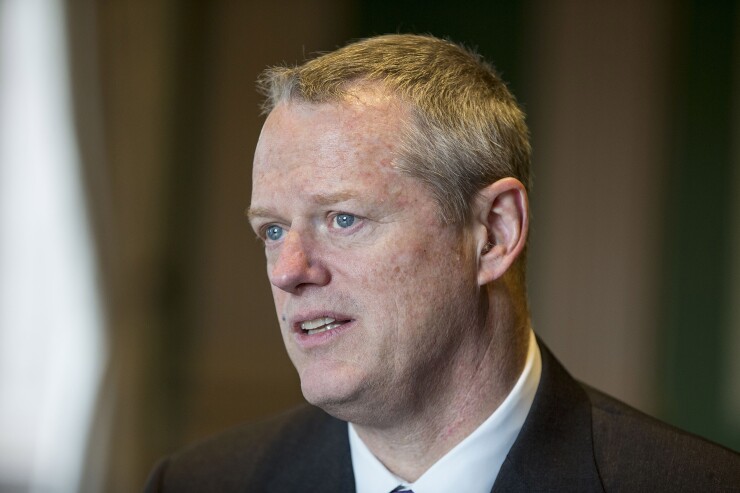Three weeks into the fiscal year, Massachusetts lawmakers approved a $43.1 billion budget for fiscal 2020.
Gov. Charlie Baker has 10 days to review the spending plan, which is fractionally higher than the $42.7 billion to which Baker and the legislature originally agreed. It is up 4% from the approved FY19 plan.

By longstanding state law, the House of Representatives and Senate pass their own budgets, then a concurrence panel of three members meets to iron out differences. Top lawmakers reached a deal over the weekend.
One major compromise involved new controls on prescription drug costs in the state Medicaid program, Lawmakers passed a less stringent version than what Baker had sought while approving his call for drug companies to negotiate price discounts with the commonwealth.
A Baker signature would leave New Hampshire, North Carolina — both with gubernatorial vetoes — and Oregon without approved budgets. Oregon Gov. Kate Brown has until July 31 to sign the spending plan and could use executive powers to include a climate-change measure lawmakers did not approve.
Moody's Investors Service said late budgets reflect governance weaknesses which could be a credit negative for states. "Late budgets can also expose local governments and other downstream entities to an interruption in state payments," Moody's said.
Moody's rates Massachusetts' general obligation bonds Aa1, while Fitch Ratings and S&P Global Ratings assign AA-plus and AA, respectively.
The Massachusetts House passed the budget 158-0 on Monday, while the Senate approved it 39-1. Sen. Marc Pacheco, D-Taunton, objected to a policy related to offshore wind energy.
Negotiators cited strong tax revenue projections for the increased spending in the final plan. By law, about half that amount is earmarked for the Massachusetts Bay Transportation Authority, the Massachusetts School Building Authority, and the commonwealth's stabilization, or rainy-day fund.
According to state Rep. Aaron Michlewitz, D-Boston, chairman of the House, Ways and Means Committee, the FY2020 budget makes the largest investment ever in Chapter 70 school funding, with a $268 million increase over the previous fiscal year, and a $27 million hike in charter school reimbursements.
Chapter 70 is the major state-aid program to public elementary and secondary schools. It also establishes minimum spending requirements for each school district and minimum requirements for each municipality's share of school costs.
Omitted were Baker's proposals for new taxes on opioid manufacturers, e-cigarettes and vaping products.
The budget includes Baker's call to require large online marketplaces such as eBay to collect a state sales tax.





